You may be wondering why I called you here today?
 This is an EYES ONLY briefing about the status of my latest abomination.
This is an EYES ONLY briefing about the status of my latest abomination.Today I attached the wings after adding the front gunbay cover, and filling and sanding mis-fits.
There is a significant lip between the lower fuselage and the bottom wing leading edge. The wing has more curvature than does the fuselage.
Cliff
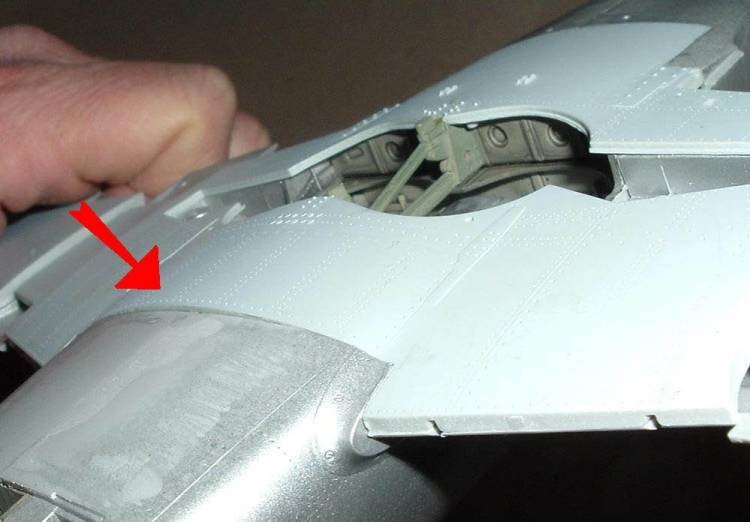
Otherwise, the fuselage-wing fits are all very good and tight. There is a obvious gap along the wingroot, but looks like minor gap-filling superglue or even a healthy does of liquid glue may preclude any filling/sanding; I tried both.
Filled Root, super glue
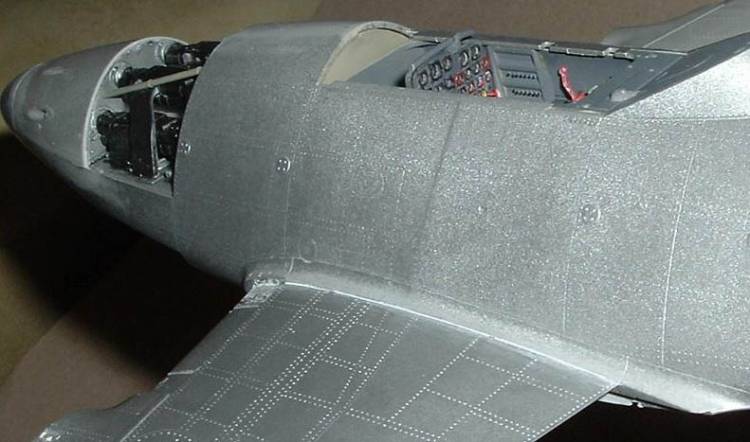
Filled root, super glue
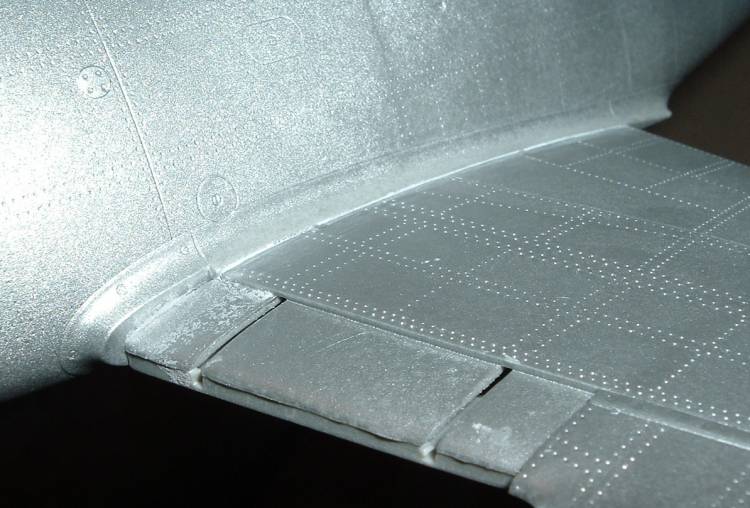
Unfilled Root
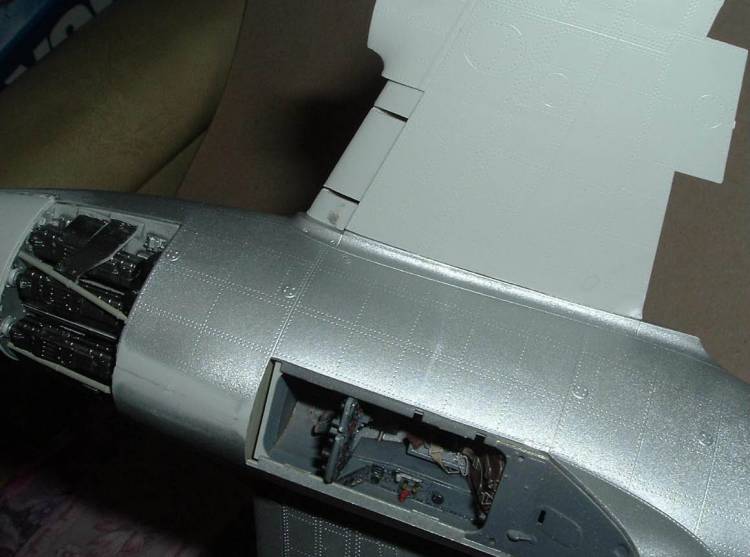
Bottom rear wing to fuselage
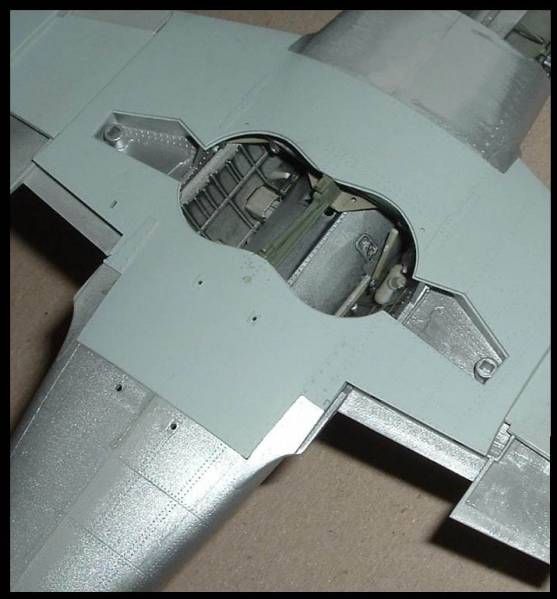
Gear well
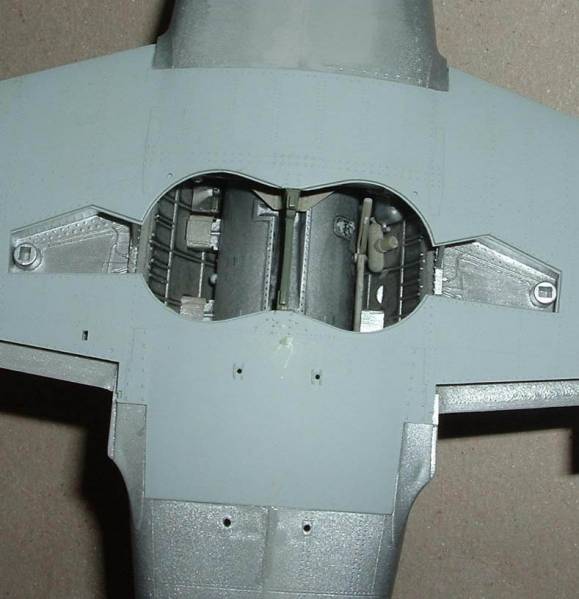
That reminds me, the sides of the jet nacelle's intake are too wide:
Nacelle
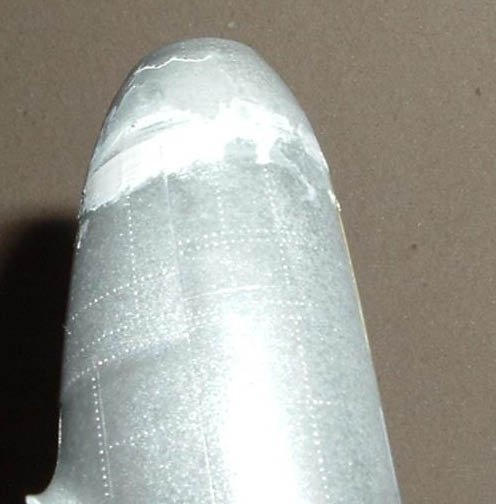
I have also retro-added cross-links to my other Trumpeter ME-262 posts:
Trumpeter ME-262 Painting
Bad Fittings
Trumpy Me-262 Progress--Nose & Fit
Trumpeter Me-262 Progress
Trumpeter Me-262 Stalled
Trumpeter Me-262 Warped Wing
Trumpeter ME-262 Guns, Cockpit, Engines
Trumpeter ME-262 Gun bay
Trumpeter ME-262 with In-box Review
As I archive this build, I will supply hotlinks to the build's other posts.
Stay tuned























